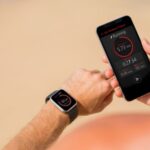
Why Do I Look Puffy After Working Out?
Page Contents
You’ve just finished a challenging workout, feeling accomplished and sweaty, only to notice that your reflection in the mirror looks somewhat “puffy” or bloated. Don’t worry; you’re not alone in this experience! Feeling puffy after a workout is a common occurrence, and there are various reasons behind this phenomenon. In this blog post, we’ll explore the factors that can cause post-workout puffiness and what you can do to alleviate it.
Water Retention and Electrolyte Imbalance
One of the primary reasons for feeling puffy after working out is water retention. During exercise, especially intense or high-impact workouts, your body heats up, and you start sweating to cool down. Sweating is a natural cooling mechanism, but it also leads to fluid loss. In response to this fluid loss, your body may retain water to maintain fluid balance. This can result in a temporary puffiness or bloated feeling, particularly in the face, hands, and feet.
An electrolyte imbalance can also contribute to post-workout puffiness. Electrolytes, such as sodium, potassium, magnesium, and calcium, play a crucial role in regulating fluid balance in the body. If you sweat heavily during your workout and fail to replenish these electrolytes adequately, it can lead to fluid retention and a puffy appearance.
Inflammation and Muscle Swelling
Intense workouts, especially strength training or high-intensity interval training (HIIT), can cause micro-tears in your muscle fibers. This is a normal part of the muscle-building process, and it leads to muscle repair and growth. However, in the initial stages of recovery, the muscles may swell and become inflamed. This can give you a temporary feeling of puffiness or tightness in the areas you’ve worked out.
Inflammation is a natural response to muscle damage, and it typically subsides within a few days as the muscles repair and become stronger. While this post-workout inflammation is entirely normal, it may contribute to the feeling of puffiness immediately after your exercise session.
Post-Workout Nutrition
What you eat after your workout can also play a role in post-exercise puffiness. Consuming foods high in sodium or processed carbohydrates can lead to water retention, especially if you’re not properly hydrated. Additionally, some individuals may be sensitive to certain foods, leading to bloating or discomfort after eating.
To reduce post-workout puffiness related to nutrition, focus on consuming a balanced meal that includes protein, healthy fats, and complex carbohydrates. Avoid excessive salt and processed foods, and drink plenty of water to stay hydrated and flush out excess fluids.
Lymphatic System and Circulation
Your lymphatic system plays a crucial role in removing waste and excess fluids from your body. However, unlike the circulatory system with the heart’s pumping action, the lymphatic system relies on muscle movement and external factors (such as massage or compression) to move lymph fluid through the body.
During exercise, your muscles contract and relax, helping to promote lymphatic drainage and circulation. However, if you have a sedentary lifestyle outside of your workouts, this can impact the efficiency of your lymphatic system, potentially leading to post-workout puffiness. Incorporating regular movement throughout the day, even if it’s just light stretching or walking, can support lymphatic flow and reduce puffiness.
Why Do I Look Puffy After Working Out? – The Conclusion
Feeling puffy after a workout is a common experience, and it’s usually nothing to be overly concerned about. Water retention, inflammation, post-workout nutrition, and the lymphatic system are all factors that can contribute to this sensation. Remember that post-exercise puffiness is generally temporary and will subside as your body recovers and adapts to your workouts.
To minimize post-workout puffiness, stay hydrated, replenish electrolytes, and focus on a balanced post-workout meal. Incorporating gentle movement and regular exercise into your daily routine can also support your lymphatic system and promote fluid drainage.
Ultimately, don’t let post-workout puffiness discourage you from staying active and pursuing your fitness goals. Celebrate your accomplishments, embrace the process, and remember that your body is adapting and growing stronger with each workout.




